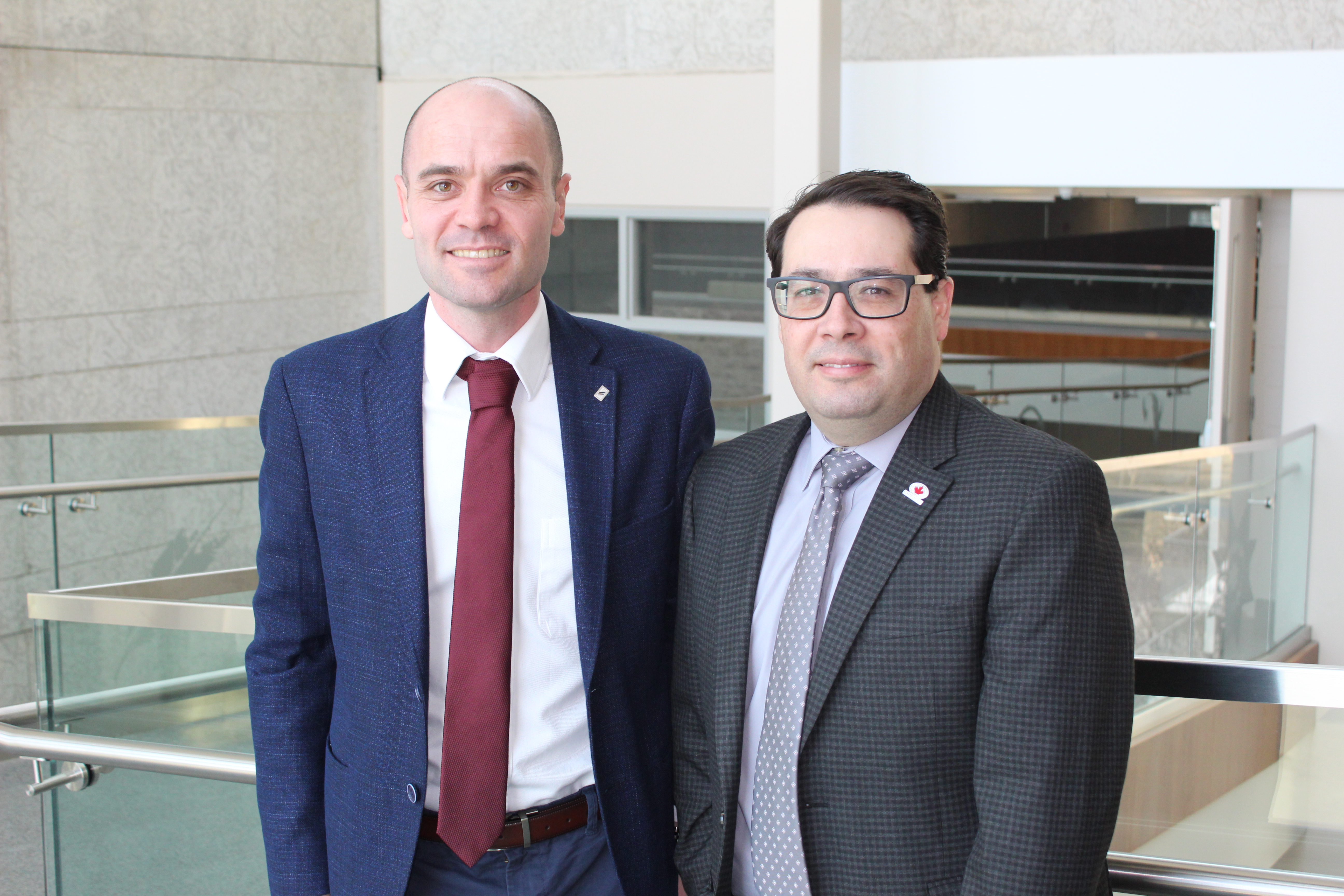
USask researchers publish paper on coronavirus and impacts to dentistry
University of Saskatchewan (USask) Professor and Associate Dean, Dr. Walter Siqueira (DDS, PhD), along with USask visiting professor Dr. Robinson Sabino-Silva, and Dr. Ana Carolina Gomes Jardim an assistant professor from Federal University of Uberlandia, Brazil, recently published a point-of-view article on the Coronavirus COVID-19 and the impacts to the dental community.
By Jenna FraserUniversity of Saskatchewan (USask) Professor and Associate Dean, Dr. Walter Siqueira (DDS, PhD), along with USask visiting professor Dr. Robinson Sabino-Silva, and Dr. Ana Carolina Gomes Jardim an assistant professor from Federal University of Uberlandia, Brazil, recently published a point-of-view article on the Coronavirus COVID-19 and the impacts to the dental community. The article also touches on the potential to use saliva as a diagnostic method for the disease.
The article notes that, “There is a need to increase investigations to the detection of COVID-19 in oral fluids and its impact on the transmission of this virus, which is crucial to improve effective strategies for prevention, especially for dentists and healthcare professionals that perform aerosol-generating procedures.” Aerosol-generating procedures are ones during which airborne particles are produced, therefore creating the potential for airborne transmissions of infections. While the article notes that the COVID-19 transmission routes are yet to be determined, there has been confirmation of human-to-human transmission, a cause for concern for healthcare practitioners who may be performing aerosol-generating procedures on a patient infected with the coronavirus, but not yet diagnosed.
Additionally, the article states that “COVID-19 was recently identified in saliva of infected patients.” It goes on to outline that further investigation is needed in order to determine not only the role saliva plays in the transmission of the disease, but also its potential as a less invasive diagnostic tool for detecting the coronavirus, as opposed to using blood samples. This is an area of particular interest to author and USask professor, Dr. Walter Siqueira, who in the past has had success using saliva to increase the detection period of the Zika virus from four days to over 20.
Read the entire article, published by Springer Link, here.
